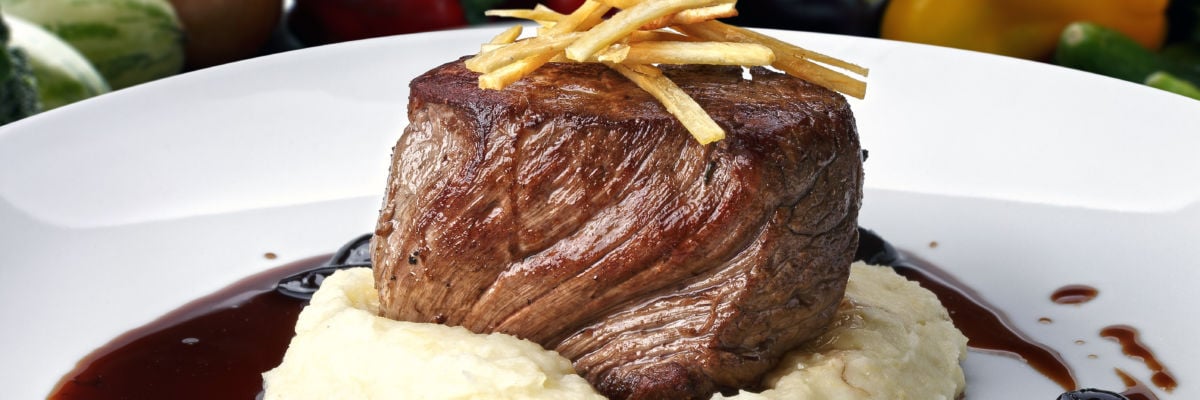
Catholics tend to do penance better than celebration during the Church’s liturgical year—at least when it comes to Lent and Easter.
Many Catholics are apt to observe the whole Lenten season, starting with Ash Wednesday, in some penitential way. Easter, on the other hand, tends to be “one and done,” to borrow from traditional sports parlance. But closing up our celebrations on Easter Sunday misses an important liturgical truth: the Easter season lasts for fifty days, and the first eight of those days, the Easter octave, are so important that the Church directs that we feast for the whole week—even on Friday!
Each day within the eight-day celebration of the Easter octave is a solemnity, the Church’s highest class of feast. (Sundays throughout the year retain a special liturgical character, irrespective of whether they are solemnities, because of their intimate relationship with Easter—see below.) This means Catholics must shift their thinking when it comes to the usual Friday penance. Whereas the Church requires Catholics to abstain from meat, fast, or substitute some other penance on Fridays for almost the entire year, all of these practices are contrary to Church discipline when it comes to the celebratory spirit of the Easter octave!
I remember when I helped coordinate a fundraiser for a Catholic apostolate on Easter Friday, and a local organizer expressed some apprehension about the decidedly unpenitential menu. Thankfully, the diocesan bishop assured him that serving meat would be in keeping with the solemnity of the Easter octave. Likewise, we can pray the Glorious Mysteries on Easter Friday, even though the Sorrowful Mysteries are the custom for Fridays during the rest of the year.
The octave of Easter, by the way, is not the only octave in the liturgical calendar. Historically, there were several, including the octaves of Christmas, Epiphany, and Pentecost. Since 1969, only the octaves of Easter and Christmas remain. Although the Christmas octave is also a time of joyous celebration, it’s worth knowing that, unlike in Easter, the Friday of that octave retains its penitential character.
What makes Easter and the Easter octave—and Sundays in general, for that matter—so special? Easter annually commemorates Christ’s victory over sin, death, and the devil. Thus, Easter is, as the Catechism of the Catholic Church provides, the “feast of feasts” and the “solemnity of solemnities.” In addition, Jesus rose from the dead “on the first day of the week” (John 20:1)—that is, on Sunday. Consequently, while most Sundays are not solemnities, Sundays in general are still considered on par with solemnities. In one sense, Sundays even transcend solemnities. Why? Because they are “little Easters” that commemorate the day on which Jesus rose from the dead. That is why every Sunday is a holy day of obligation that requires our participation in Mass, whereas many solemnities, including six of the eight days of the Easter octave, have no obligation.
Also, because it celebrates our Lord’s triumphant paschal mystery, Sunday “is to be observed,” as the Catechism provides, “as the foremost holy day of obligation in the universal Church.” Therefore, even when a solemnity liturgically “trumps” a certain Sunday—for example, the Solemnity of Sts. Peter and Paul (June 29)—the Sunday remains a holy day of obligation solely by virtue of being a Sunday.
Easter Friday isn’t the only day we get a break from our usual penances. There was another one last month, when the Solemnity of St. Joseph landed on a Lenten Friday. We should’ve taken a respite from our Lenten observances on March 19 and feasted in honor of the patron of the universal Church—especially in the Year of St. Joseph!
If you missed out on St. Joseph’s day, make sure all the more to celebrate today: Easter Friday. That right: thank God it’s Easter Friday!
The Church’s discipline that we should feast on a Friday—where else but Catholicism can you find discipline and feast in the same sentence?—is a wonderful reminder that we are ultimately made for celebration in our risen Lord Jesus Christ, and that suffering can be redemptive, not pointless (see 2 Cor. 12:8–10). Every penance, every sacrifice, every moment of carrying our cross (Luke 11:23–24) is ordered so we can participate—and participate well—in the life of our risen Lord, both here on earth and in the hereafter. So Lent is ordered toward Easter, Good Friday toward Easter Sunday, and our lives in general as the Church Militant in the temporal world toward our participation in the Church Triumphant in heavenly glory.
After a Lent full of redemptive suffering, we should be ready to feast for eight straight days, as is proper for the Easter octave. And if you want to get your children more interested in God and the Church, eight consecutive days of special meals, desserts, movies (for example, Jesus of Nazareth), etc. are guaranteed to foster their favorable attention. Participating in Mass on at least one day from Easter Monday through Easter Saturday is highly recommended, or at least reading the daily Mass readings at your festive family meals. And the Lenten-Easter journey can also demonstrate that the Church’s challenging moral teachings are not infringements on our freedom, but rather doctrines that liberate through genuine, disciplined love when patiently and joyfully embraced.
Finally, throughout the liturgical year, the daily and weekly re-presentation of Christ’s one paschal sacrifice at Mass should be a reminder that all religious feasts, liturgical and at home, are ordered toward the heavenly splendor of “the marriage supper of the Lamb” (Rev. 19:7-9), when our earthly pilgrimage concludes, the sacramental veils are taken away, and we commune with our Lord Jesus Christ “face to face” for all eternity (1 Cor. 13:12).
As the father of the prodigal son says, “let us eat and make merry” (Luke 15:23)!



